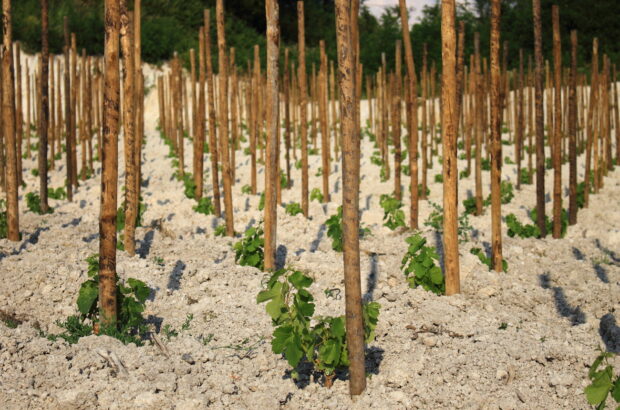It's been a long pregnancy, but the baby is, at last, almost with us. In the next few weeks, the European regulations regarding 'organic wine' (as opposed to 'wine made with organically grown grapes') are due to be published in the EU's Journal official.
The regulations come into force on August 1st this year, and can be applied retrospectively to wines from the 2011 harvest, supposing they were made in conformity with the new requirements. This year’s wines, of course, can be vinified with the rule book in hand. European organic wine will be a reality from this autumn.
The new regulations should ensure that everything which happens to the grapes between harvest and bottling is carried out in an organic spirit. No one, of course, is suggesting that pigeage (punching down) is more organic than remontage (rack and return) when it comes to extracting colour, flavour and tannin from red grape skins, or that there might be an organic and non-organic way to press white grapes. What does matter, if you are wedded to the ideals of purity and naturalness which the word ‘organic’ implies, are winery additions. Will ‘organic’ mean fewer of them?
This is a matter of consequence, for the simple reason that ingredient labelling for wine is more lax than it is for foods and soft drinks. Unless you buy all your wine from the heroic Co-operative chain in the UK (or drink nothing but Bonny Doon), you won’t know exactly what non-grape ingredients have been added to your wine, the obligatory mention of sulphites aside. The Co-operative does spell out further additions on its back labels – carboxy methyl cellulose, tartaric acid and pectinolytic enzymes on its Fairtrade Chilean Sauvignon Blanc Riserva, for example (and nothing at all bar a little bentonite and gelatine for fining in the Puerta Colorada Rioja Tinto).
My guess is that most of those buying ‘organic wine’ would do so in the hopeful spirit that it will contain fewer additions than conventional wine. That magic word ‘organic’, though, would be the only clue, since the labelling laws let us all down so badly in this respect.
Alas, these hopes are likely to be dashed. The only snippets we have been offered of the coming legislation is that additions of sorbic acid (potassium sorbate – a sweet wine preservative) will be forbidden, as will the relatively uncommon process of desulphurization. Overall maximum sulphur levels will also be lower than that permitted for European wine in general. A bit lower: 100 mg/l in place of 150 mg/l for red wines, and 150 mg/l in place of 200 mg/l for white and rose wines. Daring this is not: the wines of good ‘conventional’ producers will be comfortably under the new organic limits. And organic producers, it would seem, will still be able to use the full panoply of acid additions, must enrichment, yeast nutrients and enzymes.
I still welcome the legislative development: it’s important to step in the right direction. Remember that the rules regarding organic cultivation are not yet perfect, either. Few organic producers like having to use copper sulphate in their vineyards: there is an unhappy friction between the organic ideal and the reality of spraying a metal residue into your soils. Out of that unhappiness will come progress. Maybe the presence of a different set of rules for organic vinification, too, will begin to convince Europe’s legislators that current labelling requirements for all wine, whether organic or not, need revision.
I’m not saying, of course, that full disclosure of additions would result in better wine. It’s not the presence or absence of an intervention, an addition or an adjustment which matters, but the quality of judgment which lies behind that presence or that absence. Full disclosure would, though, make all winemakers at least stop and think about why they are making an addition – and might spare us some of the wine caricatures which undisclosed, heavy-handed additions create.
Written by Andrew Jefford







